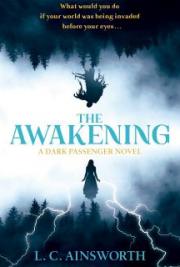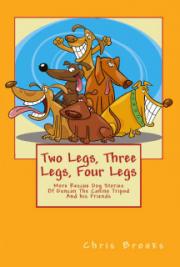 When I am reading, I tend to fidget with things – my fingernails, the edge of a page, my hair, anything I can get my hands on. It’s a nervous habit borne out of restlessness. But I also believe that part of it is due in some part to this new generation of instant-gratification technology. I know. It sounds like I am blaming technology for my own short-comings. Yet another malady that is showing up more and more in our lives – laying blame outside of ourselves. But allow me to muse on that other issue for a moment, if you will.
When I am reading, I tend to fidget with things – my fingernails, the edge of a page, my hair, anything I can get my hands on. It’s a nervous habit borne out of restlessness. But I also believe that part of it is due in some part to this new generation of instant-gratification technology. I know. It sounds like I am blaming technology for my own short-comings. Yet another malady that is showing up more and more in our lives – laying blame outside of ourselves. But allow me to muse on that other issue for a moment, if you will.
Just today, I emailed a colleague on the other side of the world, who’s workday coincides with my night. I wanted to talk to him about a work issue and my statement that I’d be monitoring email even though I may not be at the computer and working made me add in brackets “Ah the curse of the smartphone”. You see, if it is nighttime for me, I ought to be sleeping or doing home things – not monitoring email for work. One can love one’s work so much that work blends into play time as well. I have the good fortune of loving my work and thus any extra time spent doing it is not a bad thing for me.
The problem with working from home and with loving my job is that when it’s time to stop the day and focus on home things, I end up blurring the lines. I have been known to be watching a movie with my husband and end up asking him to pause the movie so I can respond to an email on my phone. There is such a thing as “too much work” – even if you happen to love the work.
Hence my supposition that my fidgeting while reading is a consequence of always being connected. I have become used to checking and re-checking email, social media feeds, and instant message conversations at all hours of the night and day. Thus when I settle in to read a book, it doesn’t take long before my mind starts to wander.
There was an article on NPR recently which chronicled an interview with Clifford Nass, an author, about multitasking. In one section, the interviewer asks Nass his feelings about people who boast about being to able to multi-task:
FLATOW: Yeah, but there are people who say, you know, I’m great at multitasking. I can – I have no problem with this. What do you say to that?
NASS: The research is almost unanimous, which is very rare in social science, and it says that people who chronically multitask show an enormous range of deficits. They’re basically terrible at all sorts of cognitive tasks, including multitasking. So…
The thing is, as much as we think we are accomplished in multi-tasking, it does interfere with our normal ability to focus on one thing. As I am writing this, a friend is sending me instant messages and Facebook is beeping at me with responses to posts I am following. And I am sorely tempted to look and possibly respond. Multi-tasking says I can. Being able to finish this post before midnight tonight says I shouldn’t. And according to research, if I do, I am only hurting myself in the long run.
Later on in the interview, Flatow asks:
FLATOW: So multitasking is a misnomer then? It’s like multiswitching, you say? You’re switching back and forth and not doing things at the same time.
And Nass answers with this gem:
NASS: When it comes to media, sure. So we all, of course, are breathing while we’re eating while we’re doing other things. But when it comes to media or our prefrontal cortex, the thinking part of our brain, yes, we’re basically switching back and forth. We only have about three bits’ worth of information we can mess with at any one time.
So when I stop typing to respond to an instant message, I am actually leaving my blog post behind, putting it on pause, and switching to a new task. I’m not really multitasking at all. And in fact, multitasking is only in reference to activities I can do absent-mindedly – like breathing, or drinking, or eating. If it requires any amount of thinking, I am actually switching to something new.
Thus, when I am fidgeting while reading – checking my text messages, emails, social media feeds – I am actually not multitasking at all. And I am hurting my ability to focus purely on one task at a time. You know that old saying “practice makes perfect”? Well, we are practicing to be distracted. I am, at any rate. I need to discipline myself to be able to finish a task in one sitting. I should have started with this post. Maybe I’ll get it right the next one?












7 Comments
If you are reading efficiently, you are already multitasking. An efficient, not just fast, reader takes in entire phrases at one glance, and turns the task over to another part of his or her brain to decode the phrased.input into words. By training the brain to read, not word by word, and sub-vocalizing each word so that it is “heard” through the brain’s aural centers, we can read entire portions of lines, while with another portion of our brains we can retain the content as words not just sounds.
A truly efficient reader can process words by their appearance, allowing us to read several lines at once, and leave it to the various multitasking portions of our brains to sort and reorder the input from our eyes into coherent text. An efficient reader can be done with a reading task before it becomes an interruption.
I am 65, and in my teens I signed up for the Evelyn Wood Speed Reading classes, They offered a triple your money back guarantee that you would triple your reading speed. In the first class the measured everyone’s reading speed as a benchmark for their guarantee. most people in the class were reading at speeds as low as 100 wpm and 300 wpm. I tested out at 2,000 wpm, and the instructor called me over after class and offered me the triple check on the spot. It was his opinion that I was already using the methods they were going to teach. He fully expected to get the 100 wpm readers up to 300 wpm and the 300 wpm readers to 900 wpm. He felt that it was going to be an impossibility to get me to 6,000 wpm. I took the check and happily departed.
I read an average of two textbooks and five novels each night. My teachers had usually received advance warning that I did not do homework if I could avoid it, but would pass every test given with a perfect score. I would even go so far as to sabotage a teacher who insisted on homework in order to receive a good grade, It was an easy matter to insist on the inclusion of facts that were not included in the chapters we were assigned to read, with information from skipped chapters or from outside reading interjected into class discussions. Usually the teacher gave up after 2-3 weeks, and let me take the class the way I wanted.
If I could have tested out of the class by passing the final exam, I would have graduated elementary school at about seven, and junior high by eight, as long as they would waive the Phys. Ed. requirements. School was about nine months long and the main approach to Phys. Ed. was to be able to run a mile without collapsing, and climb a rope all the way to the ceiling, I found it very easy as I ran ten miles before school and could climb the rope when I was in kindergarten. I figured that should satisfy the Phys. Ed. portion of my school work. But, instead they insisted that I spend time in a classroom being bored while a teacher taught me a lesson I already knew better than the teacher.
Needless to say, I was always a disruptive influence in class, unless the teacher allowed me to sit in the back of the class and read or draw, while keeping one ear on the teacher’s progress, If I got called on, I not only answered the question, but supplied additional information that either backed the textbook, or could dispute it with supporting detail. They usually just ignored me after 2-3 weeks on the matter of class participation.
Reading effectively requires multitasking, because the eye can see faster than one area of the brain can decode. You must take information from the text, picking out entire phrases, both forward and backwards, turn it over to another portion of the brain to rearrange the data according to its own perception of where it was on the page, while another portion tuned the phrases into concepts. Done properly, the eye, passed the information to one after another decoder, while they all passed the information from one another to yet another multitasking portion of the brain that would extract the relevant content to be stored in the brain.
That is efficient reading and done properly, there is no need to fear interruption. Another portion of your brain can process the information from a telephone call or an email letting some of the reading multitasking get caught up with the speed of the eye.
Another test of true multitasking is how you drive an automobile. If you can keep one portion of your brain on the car’s speed and performance, another on the road surface, another on the other drivers on the road with you, another on what your children are doing in the back seat, another alert for the sound of a seat belt clicking open, and yet another keeping track of where you were and where you were going so that there was no need to pull over and check a map, or to badger your spouse for more information and placing (s)he for information about what lane you should be in when (s)he had been thinking about other things and had no idea where you were and when you would need information.
Multitasking is how I drove and rode motorcycles for fifty years with the only accident occurring when our car was stopped at a traffic light and a distracted driver rear-ended us. I lost the sight in one eye in that crash, but it was the only accident I was involved in, and if I had been on my motorcycle, I could have pulled out of her way, In a car, I was helpless, only being able to warn my family of the impending crash so that they were braced for it.
Anyone who cannot keep his mind on multiple tasks at the same time is not a true multitasker, only one who can rapidly switch their attention from one task to another, and hopefully remember where they left off when they get back to their original task where they were when they switched their attention away. There are not a lot of true multitaskers in our population, they are very rare.
Is there anyway this this trait of true multi-tasking can be acquired? Maybe through the right training at an early age? Can it be hereditory? Does any of your children multi-task just like you?
Now, from a psychological, and documented point of view about multitasking. There are people who are born with the ability to multitask. Such people are capable of using both sides of the brain simultaneously. Try this, and please do it in a sink, it gets messy. get two glasses of water and a spoon. With one glass stir the spoon in the water, and take the other glass of water and swirl it in your other hand. You will find that they mirror each other, one going clockwise, the other counter. You can switch directions and the other hand automatically switches. Now, intentionally try to swirl the glass in the same direction as you are stirring the other glass of water, both clockwise or counter. Uh oh, you get all spastic. Yet, if you don’t and you can do it easily and instantly, then you are using both sides of your brain at the same time. Now some of you might struggle and practice to get the same direction thing going and succeed and jump for joy that you can use both sides of your brain. Not so, you are only performing like a trained monkey who has learned an new skill.
Those who are capable of using both sides of their brain simultaneously can excel at true multitasking. The rest must develop the ability like learning how to speed read, or learning multiple languages and have those rattle around in your brain.
that is very interesting! i always listening to music when i reading.
If you want to multi-task listen to classical music while working. Mozart seems best but some other composer may work for you.
A very interesting article, and thanks for your insight. I find what you say to be true in my case, and I have never considered it before.
Rob
I try to multitask while reading too and it doesn’t work too well. When the TV is on I find myself trying to do both but find I have to read the paragraph over and over cause I am seeing the words but not not absorbing what I read.